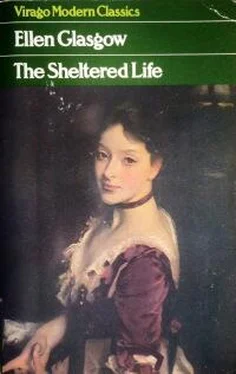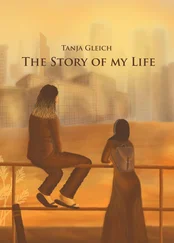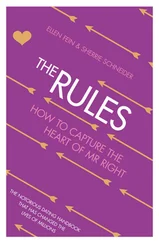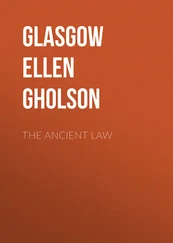Ellen Glasgow - The Sheltered Life
Здесь есть возможность читать онлайн «Ellen Glasgow - The Sheltered Life» весь текст электронной книги совершенно бесплатно (целиком полную версию без сокращений). В некоторых случаях можно слушать аудио, скачать через торрент в формате fb2 и присутствует краткое содержание. Жанр: Классическая проза, на английском языке. Описание произведения, (предисловие) а так же отзывы посетителей доступны на портале библиотеки ЛибКат.
- Название:The Sheltered Life
- Автор:
- Жанр:
- Год:неизвестен
- ISBN:нет данных
- Рейтинг книги:5 / 5. Голосов: 1
-
Избранное:Добавить в избранное
- Отзывы:
-
Ваша оценка:
- 100
- 1
- 2
- 3
- 4
- 5
The Sheltered Life: краткое содержание, описание и аннотация
Предлагаем к чтению аннотацию, описание, краткое содержание или предисловие (зависит от того, что написал сам автор книги «The Sheltered Life»). Если вы не нашли необходимую информацию о книге — напишите в комментариях, мы постараемся отыскать её.
The Sheltered Life — читать онлайн бесплатно полную книгу (весь текст) целиком
Ниже представлен текст книги, разбитый по страницам. Система сохранения места последней прочитанной страницы, позволяет с удобством читать онлайн бесплатно книгу «The Sheltered Life», без необходимости каждый раз заново искать на чём Вы остановились. Поставьте закладку, и сможете в любой момент перейти на страницу, на которой закончили чтение.
Интервал:
Закладка:
But at the end of the first year, his two daughters were still shrouded in mourning, and poor Etta's reason was almost despaired of; at the end of the second year, his son's widow failed in her endeavour and came with her only child to live in his house; and at the end of the third year, the fatherless little girl had twined herself about the roots of his heart. Even then, with three women and one little girl making a home for him, he had not relinquished the hope of his Indian summer of happiness—that patient hope of the old, so much less elastic and so much more enduring than the hope of the young.
Yet, in the end, this also was slowly strangled by life. By life and by the suffocating grasp of appearances. How could he spoil the lives of three women and one fatherless little girl? How could he bring his joy with the dove's eyes into a house which was already filled with these three women and one little girl tenderly making a home for him? If they had not been so devoted, it might have been easier; but love, as marriage had taught him (for his wife also had loved him before the end of their honeymoon), is responsible for most of the complications of life.
Jenny Blair was jumping up and down in his arms. "Grandfather, I've read a hundred and fifty pages. Don't you think you can pay me?"
"Pay you? What's that, darling? Well, we'll see, we'll see." Looking over her head, he said gently, "I hope you've had a pleasant day, my dears. Has your neuralgia troubled you, Etta?"
Etta smiled at him appealingly while she pressed her hand to her sunken temples. "It was bad this morning, but I took a headache powder, and that helped me."
"Poor child," he said, "poor child," for he sincerely pitied her. "Neuralgia must run in our family. Your grandmother used to complain of it when I was a boy. I remember to this day the red marks from mustard plasters on her temples, and then there was poor Margaret--"
He broke off with a sigh, for his only sister had been dear to him, though she had eloped, when he was a boy, with an Italian musician, who had turned out to have a wife somewhere in Europe. After she had run away, Margaret had vanished completely. He could still remember the despairing efforts his father had made to find some trace of her abroad, and the way his mother used to wake in the night crying because she had dreamed that her daughter did not have enough cover to protect her from the cold. In his early twenties, he had looked for her over Europe; but all he ever discovered was that she had died alone in some obscure lodging-house in Vienna. Well, well, poor girl, it was useless to deny that all the Archbalds were subject to intermittent flashes of nature.
There was, for example, the case of his great-aunt Sabina, who had publicly defied her Creator, in the early years of Virginia, and had escaped suspicion of witchcraft merely because she was related to all the best blood in the Colony. Then, too, there was Rodney, his brother—but Rodney's tragedy was far more modern in character. Instead of defying his Creator, he had quietly resigned from creation. But he was always, the General recalled, a quiet chap, and so, when he had put a bullet in his heart, he had left a scrawl that said only, "Shadows are not enough." Nobody knew what he meant. Crazy, they called him. Crazy, because after twenty-nine years of life, having exhausted alike the pleasures of love and the consolations of religion, he had found that shadows are not enough. Long ago, he might have been forgotten, as most unpleasant recollections are forgotten in the struggle for happiness, if Isabella's features had not preserved the shape of his fine Roman nose, the glowing dusk of his eyes, and the ivory space between the bold black curves of his eyebrows. And then, just as the General had become reconciled to the living memorial of Isabella's countenance, his granddaughter had shot up from an expressionless baby into a wilful child, who combined the doubts of his great-aunt Sabina with the eyebrows of Rodney and the pointed tongue of Erminia.
"Poor girl, poor girl," he murmured again, while he stroked back the straight brown hair from Etta's forehead. Then, in a more natural tone, he inquired, "What's become of William? Has anybody seen William?" For William, his English setter, demanded nothing of him, not even that he should feel a suffocating emotion when he was old and tired.
"I saw him come in," Jenny Blair said, still plunging up and down with her hands on the General's arm. "He must have gone back to ask Zoana for something to eat. He is very fond of Zoana."
"He eats too much." It was a relief to be able to laugh. "He is beginning to look middle-aged before he is six."
One November afternoon three years before (was it really that long ago?) he had met William, trembling and caked with mud, as he was dragged at the end of a dirty rope from his last ignominious encounter with quail. As a cure for gun-shyness, some blundering fool had peppered the dog's legs with bird-shot. That's the way with them still, thought the old man, searching his memory, there are many fools in the world, but the biggest fool of all is the fool sportsman who believes that a load of bird-shot will break a dog of being afraid of a gun. The free end of the rope was in the hand of a small coloured boy. Black as pitch, alert, wiry, nimble, it was queer the way that little negro persisted. William had been given to him, he had explained, and he was going to try some new way of breaking. His Pa knew a heap about curing bird dogs that were gun-shy.
"Wait a minute," the old man had said slowly. What, he wondered immediately afterwards, had made him say that. "Wait a minute," as if he had nothing more to do than stand in the mud of a red clay road and haggle with a negro urchin over a hunting-dog that was not only gun-shy but peppered with bird-shot. Very slowly, he had opened his pocketbook, and very slowly, after unfolding two one-dollar notes, he had handed them to the boy in exchange for the dog and the rope. What on earth—he had muttered under his breath, what on earth—and Cora didn't like dogs. Suddenly the moment had gone flat. Cora didn't like dogs. Long after the boy had pattered off down the red clay road, the General had stood there, with the dirty rope in his hand, waiting, in the midst of the autumn landscape, for a gleam of light to break into his mind. Cora didn't like dogs. And all the time William had looked up at him, from the other end of the rope, defeated, suspicious, utterly disillusioned. "No, I do not love human nature," the old man had thought, without irony and without emotion, while he bent over to ease the strain on the dog's neck.
That was the beginning of a satisfactory, though reticent, association. Unhappy memories had dampened the joy of living and extinguished sentimentality in man and dog. But Cora, who did not like dogs, admired, as she said, their fine qualities, and refused, as usual, to make a point of her prejudices. It may have occurred to her, as a simple way out of her troubles, that a dog, especially one that is gun-shy, is less upsetting in the house than a second wife, especially one that is young. No matter what happened, it is always possible, she had found, to believe the best and to trust that, sooner or later, with the help of a merciful Providence, the best may turn out to be true. As for the General, he had been obliged, for forty years, to bestow perfunctory caresses, and now, in his old age, he asked little more than the companionship that makes no demands. William, more soundly disenchanted, appeared, and perhaps was, contented to lie for hours at peace in the sunshine. Only, whenever he was taken into the country that first autumn, he would begin to tremble again at the sight of fields and woods; and then the General would take him in his arms and stroke his body, while Robert, the coachman, was ordered to return to the city. And again the old man would think, "No, it is true, I do not love human nature." Three years had gone by; yet even to-day the noise of a train or the faint far-off sound of a shot would awaken in William's nerves the old paroxysms of fear.
Читать дальшеИнтервал:
Закладка:
Похожие книги на «The Sheltered Life»
Представляем Вашему вниманию похожие книги на «The Sheltered Life» списком для выбора. Мы отобрали схожую по названию и смыслу литературу в надежде предоставить читателям больше вариантов отыскать новые, интересные, ещё непрочитанные произведения.
Обсуждение, отзывы о книге «The Sheltered Life» и просто собственные мнения читателей. Оставьте ваши комментарии, напишите, что Вы думаете о произведении, его смысле или главных героях. Укажите что конкретно понравилось, а что нет, и почему Вы так считаете.












